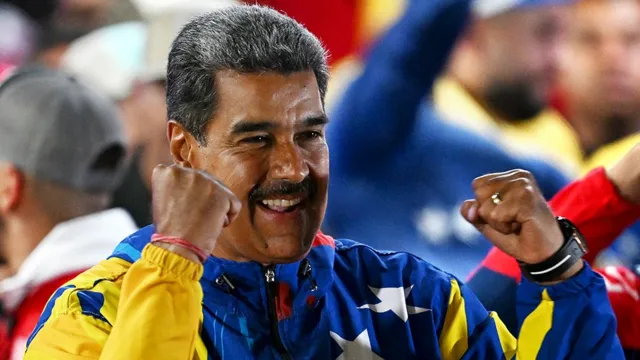As Nicolas Maduro claimed victory for a third term as president of Venezuela, fireworks lit up the night sky over Caracas. The city was alive with celebrations, with many people waving the Venezuelan flag and cheering for Maduro. But the situation is far from simple. The opposition immediately disputed the results, claiming their candidate had won instead.
Media Coverage and Allegations
In Venezuela, the media showed only images of joyous supporters celebrating Maduro’s win. This coverage contrasted sharply with the opposition’s view. The government faced accusations of manipulating the election. Some polls had shown the opposition leading, raising questions about the official results.
Problems at Polling Stations
On election day, long queues formed at polling stations, but only a few people were allowed to vote at a time. This led to accusations of deliberate delays. Some polling stations opened late or didn’t open at all, causing protests and clashes with authorities.
When we visited a polling station, officials suddenly let in 150 people after they learned about the international media presence. Allegations also surfaced that state employees, including police students, received instructions on how to vote. Maduro’s face appeared prominently at many polling stations, and his party offered incentives like free food and transport to rallies.
Concerns Over Election Fairness
Even before allegations of fraud emerged, people raised concerns about the election’s impartiality. Authorities barred opposition candidates from running and detained their supporters. Many Venezuelans living abroad struggled to register to vote, and officials disinvited international observers. These actions appeared as attempts to suppress opposition votes.
The opposition claims they only had access to a fraction of the printed receipts from electronic voting machines. This could mean tampering with the results. They also allege that their observers were denied access to the counting process. The government denies any wrongdoing and blames foreign governments for attempting to interfere.
International Reactions
The international community is now demanding proof of the election results. Nine South American countries have called for a full review of the results and an emergency meeting of the Organization of American States (OAS). The U.S. has expressed doubts about the results and is calling for the release of detailed voting data.
Argentina has refused to recognize Maduro’s victory, prompting Venezuela to recall its diplomats from Buenos Aires. Other Latin American countries, including Chile, Costa Rica, Panama, Peru, the Dominican Republic, and Uruguay, have also withdrawn their diplomats in response to what Venezuela calls “interventionist actions.”
Protests and Government Response
In Caracas, protests started right after Maduro announced his victory. Thousands of people hit the streets, shouting “freedom” and calling for the government to quit. The police used tear gas and rubber bullets to break up the crowds. Protesters burned tires and cars and fought with the police and military.
The Venezuelan government has responded by cancelling commercial flights to and from Panama and the Dominican Republic. Maduro, in a speech on state television, urged calm and patience, claiming his administration knows how to handle these situations.
Future of Venezuela
The future of Venezuela is uncertain. The country’s economy, heavily reliant on oil, is in dire straits. Millions of Venezuelans have fled, and half the population lives in poverty. The outcome of this election will be crucial for the country’s future and its relations with the rest of the world.
International groups and other countries are keeping a close eye on Venezuela. They want to see how Venezuela will handle the disputed election results and what this means for its ongoing problems. The opposition is determined and plans to keep challenging the results. How Venezuela deals with these issues will be very important for its future and its place in the world.

